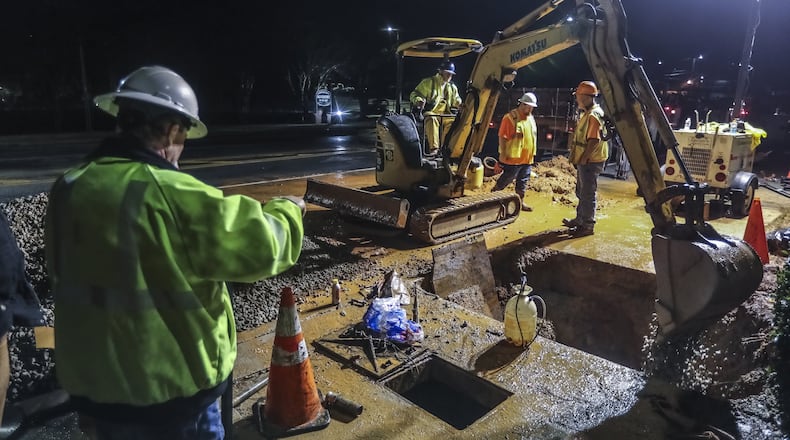Amid making decisions on crucial statewide and local elected offices in Tuesday’s primary election, Atlanta voters appeared to back by a wide margin the longstanding one-percent sales tax that funds water and sewer projects for another four years.
The Municipal Optional Sales Tax, or MOST, was first instituted in 2004 under Mayor Shirley Franklin’s administration as part of a consent decree to address a federal lawsuit over water quality violations. The mandated overhaul of the system as part of the legal agreement is estimated to cost $4 billion.
Since its inception, Atlantans have voted to renew the program four times consecutively. City residents were on track to approve the tax for another four-year cycle by a 3-to-1 margin Tuesday night.
The renewed tax is estimated to collect roughly $1.1 billion over the next four years. It will take effect in October and extend through September 2028.
Atlanta City Council approved this year’s referendum to renew the tax program which has helped avoid a water and sewer rate hike for customers. According to the city, Atlanta’s water and sewer rates have not increased since 2012.
Failure at the polls would almost certainly mean rate hikes, city officials said.
Since 2004, the tax has helped fund more than $2.3 billion in new sewer projects, and aided in the separation of about 90% of the city’s sewer lines from its water system, according to Watershed officials.
The city’s water and sewer system dates back to the 19th century and is made up of more than 2,300 miles of lines. Atlanta residents are no strangers to issues caused by outdated infrastructure.
Recently, the city’s largest wastewater treatment plant, the R.M. Clayton Water Reclamation Center, was slapped with dozens of violations by the Georgia Environmental Protection Division for releasing high levels of bacteria into the river over the last nine months.
The city’s system also made headlines when the watershed department told City Council in January that the city has nearly $200 million in delinquent water bills, which they attribute to a lack of billing enforcement and faulty water meters that desperately need to be replaced.
About the Author
Keep Reading
The Latest
Featured




